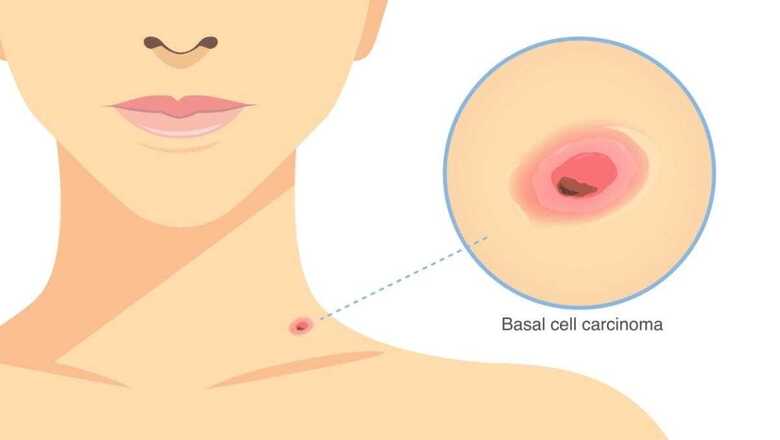
views
Basal cell carcinoma (BCC) is the most common type of skin cancer, arising from the basal cells located in the epidermis, the skin’s outermost layer. Despite its prevalence, BCC is often less known than other skin cancers like melanoma. BCC originates from the basal cells, which are responsible for producing new skin cells as old ones die off. It typically manifests as a slightly transparent bump on the skin, though it can take other forms. BCC most commonly occurs on areas of the skin that are frequently exposed to the sun, such as the head, neck, and arms. While it grows slowly and rarely metastasizes (spreads to other parts of the body), it can cause significant local damage if left untreated.
Why Does Basal Cell Carcinoma Happen?
The primary cause of BCC is prolonged exposure to ultraviolet (UV) radiation from the sun or tanning beds. UV radiation can damage the DNA in skin cells, leading to abnormal cell growth and the formation of cancerous cells. Several risk factors can increase the likelihood of developing BCC, including:
- Fair SkinIndividuals with lighter skin, blond or red hair, and blue or green eyes have less melanin, providing less protection against UV radiation.
- AgeBCC is more common in older adults due to cumulative sun exposure over time.
- Personal or Family HistoryA history of skin cancer increases the risk of developing BCC.
- Immune System SuppressionConditions or medications that weaken the immune system can increase susceptibility to skin cancer.
- Exposure to Certain SubstancesContact with arsenic and other chemicals can elevate the risk of BCC.
Is Basal Cell Carcinoma Preventable?
While not all cases of BCC are preventable, reducing UV exposure is the most effective strategy to lower the risk. Preventive measures include:
- Sun ProtectionUse broad-spectrum sunscreen with an SPF of 30 or higher, wear protective clothing, hats, and sunglasses, and seek shade, especially during peak sun hours (10 a.m. to 4 p.m.).
- Avoid Tanning BedsArtificial UV radiation from tanning beds can be as harmful as the sun.
- Regular Skin ChecksPerform self-examinations and schedule regular skin checks with a dermatologist to detect any changes early.
- Awareness and EducationUnderstanding the risks and symptoms of BCC can lead to earlier detection and treatment.
Is Basal Cell Carcinoma Treatable?
Yes, BCC is highly treatable, particularly when detected early. Various treatment options are available, depending on the size, depth, and location of the carcinoma. Common treatments include:
- Surgical ExcisionThe cancerous lesion and a surrounding margin of healthy tissue are surgically removed.
- Mohs SurgeryA precise surgical technique where thin layers of cancer-containing skin are progressively removed and examined until only cancer-free tissue remains.
- Curettage and ElectrodessicationThe tumor is scraped away, and the area is treated with an electric needle to destroy any remaining cancer cells.
- Radiation TherapyHigh-energy beams are used to target and kill cancer cells, often used for tumors that are difficult to treat surgically.
- Topical TreatmentsCreams or ointments containing cancer-fighting agents can be applied directly to the skin.
- Photodynamic Therapy (PDT)A combination of light-sensitive medication and a light source is used to destroy cancer cells.
Basal cell carcinoma, while common and generally less aggressive than other skin cancers, requires attention and appropriate care. Understanding the causes, taking preventive measures, and seeking prompt treatment are essential steps in managing and reducing the impact of BCC. With awareness and proactive skin health practices, the risks associated with basal cell carcinoma can be significantly mitigated.




















Comments
0 comment